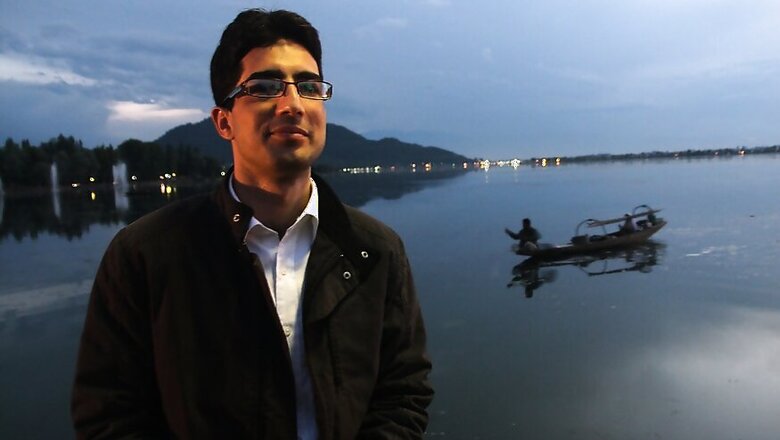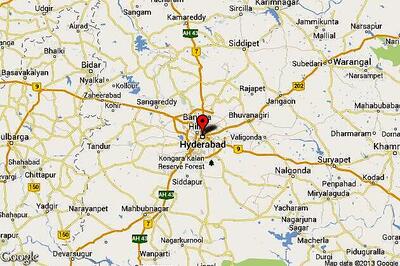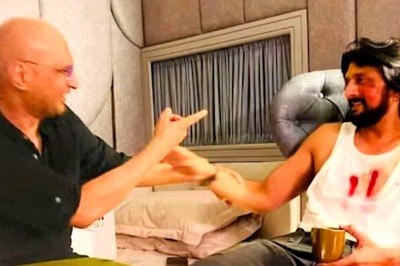
views
Srinagar: Former IAS officer Shah Faesal, who quit the service two days ago, on Friday said he had made up his mind to resign two years ago due to the “prevailing situation in the country” but it took him time to convince his family.
The 2010-batch officer, who had topped the UPSC exams, revealed that he was deeply inspired by the style of politics of Pakistan Prime Minister Imran Khan and Delhi Chief Minister Arvind Kejriwal and said he would like to contest the upcoming parliamentary elections but has not made up his mind to join any “mainstream party” as of now.
"As of now, I do not have any plans to join any existing mainstream political party. I plan to go to the field, listen to the ground, to the youngsters and important stakeholders and then take a decision," he said.
There has been speculation that he may join the National Conference as soon after he announced his decision to quit, NC leader Omar Abdullah tweeted that loss for the services was “politics’ gain”.
Below are the excerpts of an exclusive conversation with Faesal.
Here is the exclusive interview with Shah Feasal. Text and video.
Q: When did you actually decide to join politics?
SF: It was a couple of years back I decided that I need to quit service.
Q: Can we say you were disappointed with what you wanted to achieve in bureaucracy?
SF: Absolutely not! Civil service has given me absolute opportunity to do whatever I wanted to do. There were conditions in the country which required speaking up. I think that is why I need to speak up.
How did your family react to your decision?
SF: I have been trying to prepare their mind for the last couple of years. It did take a lot to convince them. But finally I think they could get convinced.
Was it some political party which approached you or you took this decision on your own?
SF: A lot of people approached me. I have been in conversation with other people as well; that is how is happens, we keep on talking to each other in the public space.
What kind of politics do you want to follow?
SF: I want to follow a politics which basically is able to manage the governance issues well, at the same time, which is able to deal also with the dispute situation which we have in the state. Maybe, it is not able to provide solutions to the dispute but it can speak truths about the dispute. That will be the brand of politics I would like to follow.
What do you have to say to the people who saw your transition from medicine to bureaucracy and now to politics?
SF: Life is a constant journey, it is a search for meaning. It is like going from place to place to learn new things in life. I find nothing wrong in that. People across the world are changing their carriers. People want to work where their heart is in peace with their mind.
Some people are saying that this transition is the quest for power; how do you react?
SF: As long as you want to use that power for public good, I think there is nothing wrong in that.
Do you think the youth who follow you will be in agreement with your decision?
SF: Not everybody will be in agreement, but my idea is to go back to the field, talk to them, try to win them over and see how possibly we can get into the process of engagement.
What actually happened in Harvard that finally convinced your mind for politics?
SF: I think Harvard gave me a lot of positivity. It also gave me a sense that how you can possibly look things from position of detachment. Because I was on a chair where I could look at things from the state angle. When you look at things from detached perspective then your mind changes.
You became a role model for a lot of people by topping UPSC exam. They wanted to follow your path; now you have left it for politics, do you think those aspiring civil servants will be dejected now?
SF: That is what needs to be told, politics and civil services are not essentially two separate domains. We keep on working with ministers. So working is, more or less, similar. I think it is very wrong to say politics is bad and civil services is good. I wish people go into every field of life and do whatever they want to do.
Who is your role model in politics?
SF: There are two people who impressed me in politics—Imran Khan and Arvind Kejriwal.
(The author is a senior freelance journalist. All views expressed are personal)


















Comments
0 comment